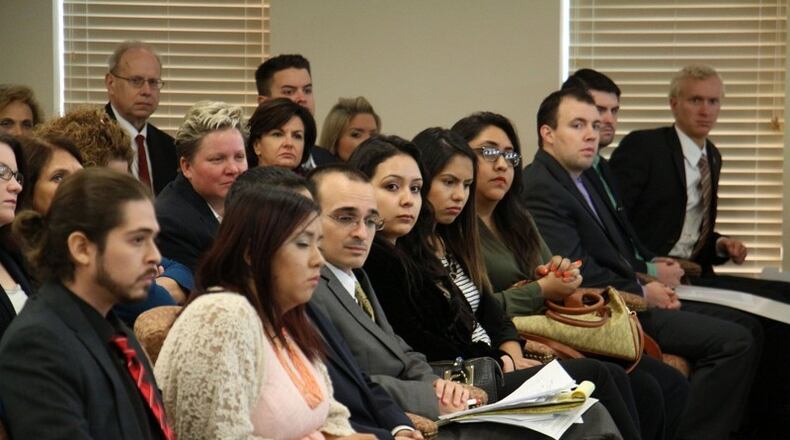A top lawyer for Georgia on Thursday cited Donald Trump's stunning upset in the presidential election as he defended a state policy barring immigrants without legal status from paying in-state college tuition rates.
At issue is the Obama administration’s Deferred Action for Childhood Arrivals program, or DACA, which grants work permits and temporary deportation deferrals to immigrants who were brought to the U.S. as children without authorization. Ten DACA recipients living in Georgia are suing the Board of Regents in the Fulton County Superior Court for the ability to pay in-state tuition, which is about three times less expensive than Georgia’s out-of-state rates.
In mentioning Trump, Senior Assistant Attorney General Russell Willard was referring to how the president-elect has vowed to cancel the DACA program. He also cited the U.S. Supreme Court's 4-4 deadlock from June over the Obama administration's plans to expand DACA and create a similar relief program for the immigrant parents of U.S. citizens.
“Regardless of how one feels about the results, there has been a national election,” Willard told Fulton Superior Court Chief Judge Gail Tusan. “There is going to be a new administration in January. And the future of the DACA program is very much in doubt with the incoming administration.”
Charles Kuck, the attorney for the plaintiffs in the case, told the judge the state was bringing up issues that have nothing to do with the case. Kuck pointed to how the regents’ policy requires universities to verify the “lawful presence” of people applying for in-state tuition and then he highlighted federal records that say DACA recipients are considered legally present in the U.S.
“There is a clear legal right of my clients,” Kuck told the judge, “to seek in-state tuition in the state of Georgia according to the plain language of the statute.”
This is Kuck's second attempt to reverse the state policy barring in-state tuition for DACA recipients. This year, the Georgia Supreme Court unanimously rejected their first attempt, saying sovereign immunity — the legal doctrine that protects state agencies from being sued — shields the Board of Regents from such lawsuits.
Without indicating how she would rule, Tusan said she would issue her decision by the end of this month. She is considering Kuck’s motion for summary judgment and Willard’s request to dismiss the case.
About the Author
Keep Reading
The Latest
Featured




